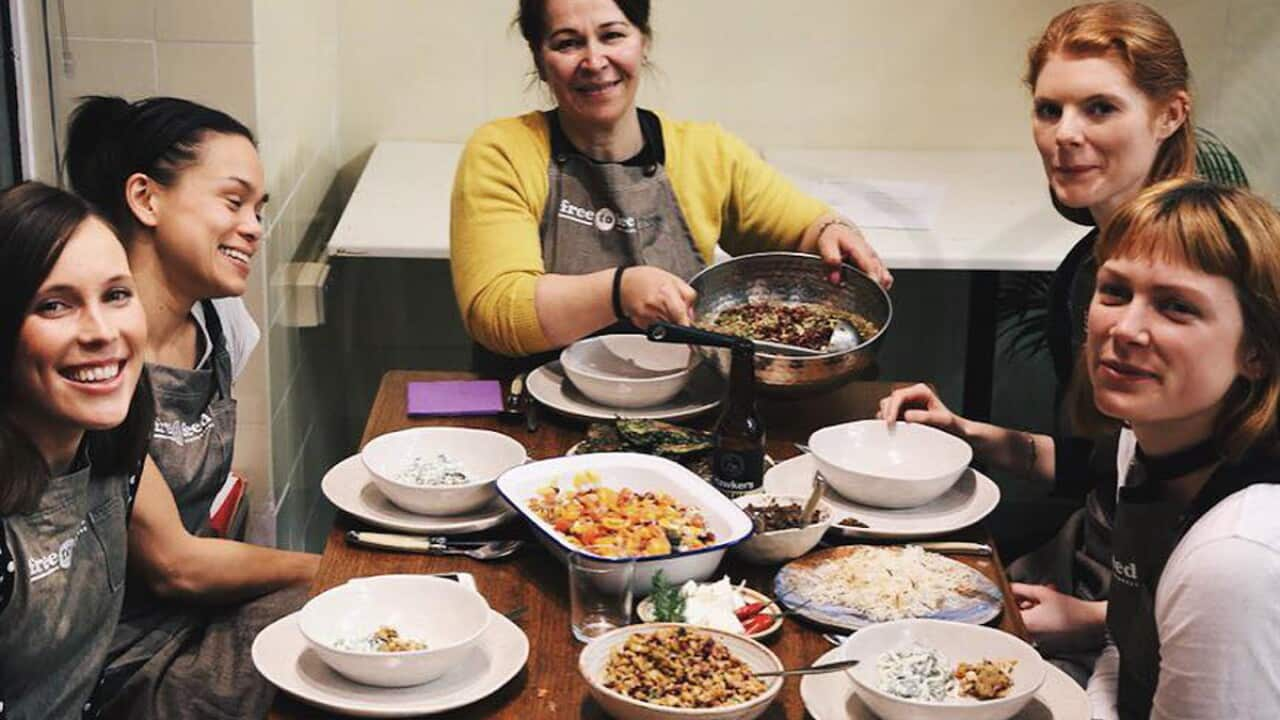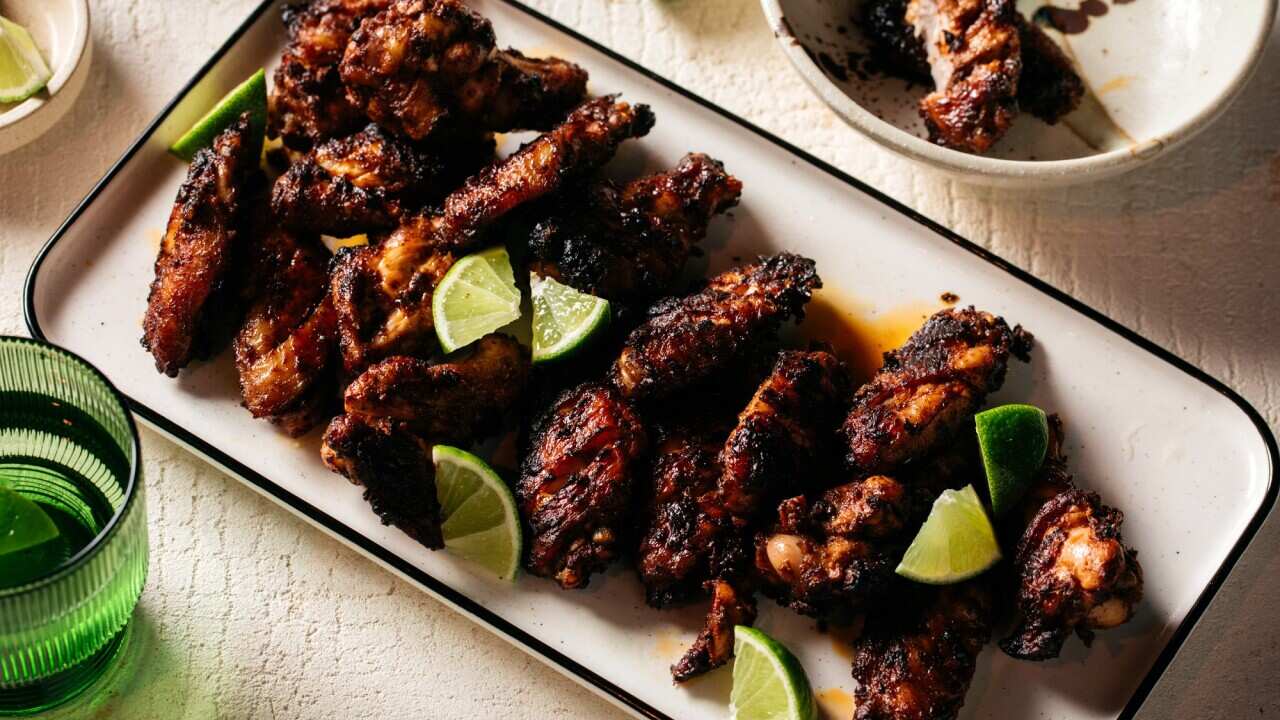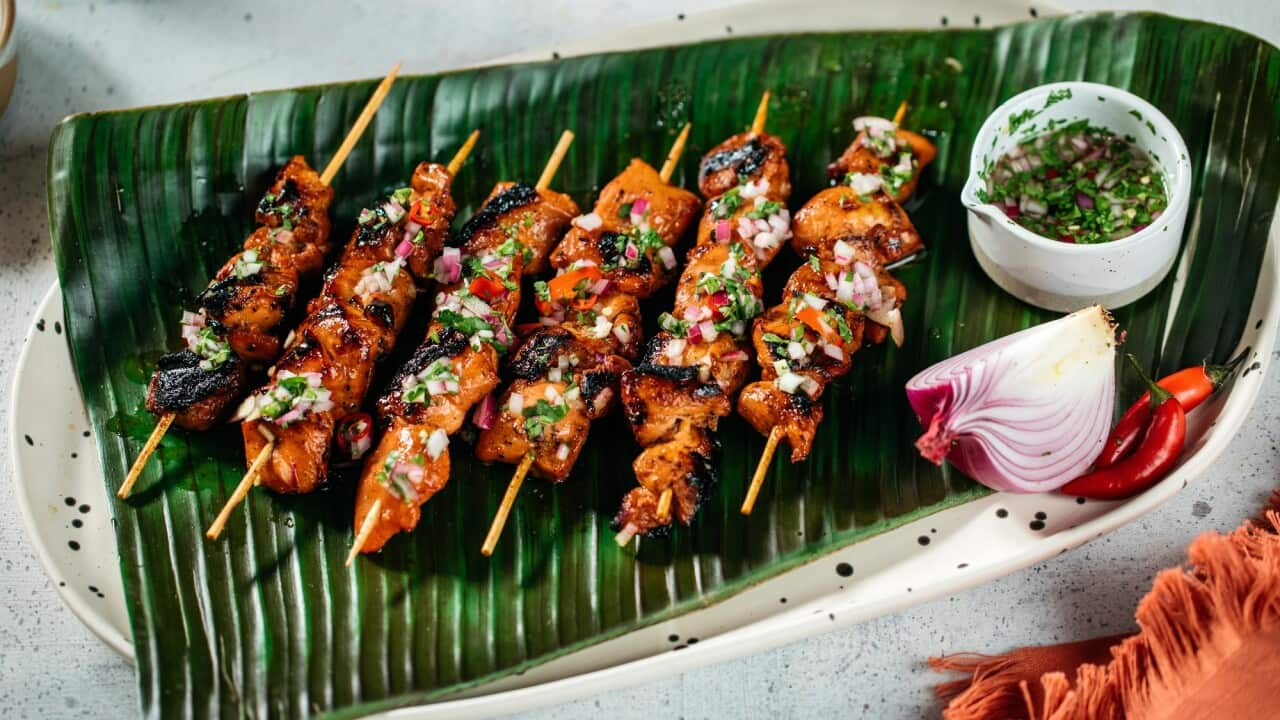From fatayer and kofte to ouzi and baghlava, a social enterprise in Melbourne is providing locals with a delicious chance to attend cooking classes run by asylum seekers and refugees.
Each week, runs pop-up cooking classes in cafes and homes across the city and beyond, with instructors from Syria, Iran and Pakistan.
The instructors take their class through five meals from their culture - from starters right through to dessert - and share their stories.
From pastries and curries to dips and desserts, the menu is varied and ever-changing, designed and tested by the experienced cooks.
Mahshid* was one of the first cooks to join Free to Feed after its launch last year.
“I love the work, because it’s not really a job,” she tells SBS. “It’s about building friendships with people who don't have any idea about asylum seekers, and making great food.” Nayran* is a recent addition to the Free to Feed team, and she echoes Mahshid’s sentiments.
Nayran* is a recent addition to the Free to Feed team, and she echoes Mahshid’s sentiments.

"People love the food," Nayran says. Source: Free to Feed
“In our culture, we cook for our family, and we love food. It's an important thing; respecting and sharing this beautiful thing between us,” she says.
Opportunities and community
Free to Feed co-founder Loretta Bolotin explains that the project began with the aim of bringing together communities and providing employment opportunities for asylum seekers and refugees.
After spending eight years working with not for profits supporting people seeking asylum, Bolotin was able to identify the gaps in the system.
“One of the biggest challenges that my clients would face is finding employment without being rejected for not having local qualifications, or being grilled about what they had been doing for the past few years - when often they had been in detention or fleeing their homes,” she tells SBS.
With that gap in mind, Loretta and her husband Daniel Bolotin pooled their money together and began Free to Feed.

Program founders Daniel and Loretta: hoping to bring communities together. Source: Gold and Grit Photography
Changing perspectives
Throughout each class, the instructor tells stories; about the origins of the dishes the class will be cooking, about their journeys to Australia, about their home countries.
Mahshid says that some parts of her story are difficult to tell, but she thinks the discussions are one of the most important parts of the project.
“Some people have a perspective about refugees and asylum seekers that is wrong, and they get to talk to us, and to learn who we are.”
“It’s about letting people know that we are here because we are risking their lives, fighting for our lives, fighting for our human rights,” says Mahshid.
Bolotin confirms that asking instructors to share their culture is an important part of the project.
“We have this mentality as Australians that we have to travel to the other side of the world to be able to really understand culture, whereas what I've found by interacting with migrants and people seeking asylum, is that you can have an out-of-this-world cultural experience a suburb away,” says Bolotin.
Promoting empowerment
Mahshid travelled to Australia from Iran almost four years ago, and says that getting involved with projects like Free to Feed and volunteering to assist incoming refugees in her community has been vital.
“The first few months are difficult,” she says. “Although I could speak English, I can imagine how hard it could be for people who don't. I didn't know how to catch the bus, get around, meet people. But after a few months, I got involved in more social activities and working.” Part of the Bolotins’ plan in creating Free to Feed is to empower those seeking asylum, rather than placing barriers and red tape in their way.
Part of the Bolotins’ plan in creating Free to Feed is to empower those seeking asylum, rather than placing barriers and red tape in their way.

Mahshid: "It's not really a job... it's about building friendships." Source: Free to Feed
Nayran is originally from Syria and has been in Australia for three years. Her background as the owner of a coffee shop meant that she brought a significant skill set to the table.
“Each class is different, it might be in a coffee shop or someone's home, so every time it's a risk to make the food in a place you don't know,” explains Nayran.
“In the beginning, it was challenging, but now it's getting easy. People love the food, they appreciate, they share.”
Free to Feed have plans to expand their project this year, with the hopes of adding more instructors and heading to regional areas. They have also begun sourcing and mixing their own authentic spice blends, which will be on sale in the coming months.
To find out more about Free to Feed or how you can get involved, you can keep up to date via their website:
- Some of those spoken to for this article asked to have only their first names used.










